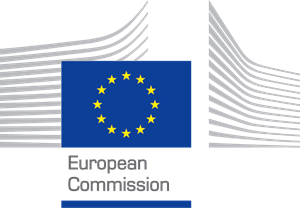Improving the recyclability of thermosetting composites using covalent adaptive network.

Project ESTELLA: Design of bio-based thermoset polymer with recycling capability by dynamic bonds for bio-composite manufacturing.
ESTELLA is an ambitious initiative that aims an innovative solution to improve the recyclability of low-recyclable materials: thermosetting composites. To this end, ESTELLA works on the design of novel bio-based epoxy resins with inherent recyclability capabilities thanks to the introduction of Covalent Adaptive Network (CAN) in the original epoxy structure.
CAN provides the thermosetting epoxy resin with the ability to respond to certain stimulus that changes the state of its microstructure and thus, the ability to be reprocessed/re-polymerized (return to original monomers and fibers). A similar strategy is applied to existing fossil-based epoxy formulations. In this way, the thermoset can be reprocessed or re-polymerized into new products and the fibers can be recovered as well.
In addition, fibers of renewable origin are used as reinforcement to manufacture thermoset composites. ESTELLA research addresses recycling techniques of any nature (chemical, biological and mechanical) to guarantee that the materials developed during the project can be successfully separated into their components in a safe and cost-effective way, hence maximizing the revenue of recycling activities.
The validation of the developed recyclable materials is carried out through economically and environmentally efficient manufacture processes (out-of-autoclave). Thus, new bio-composites are designed and developed based on the premises of improving recyclability while meeting the demands of different sectors such as construction and leisure/mobility. Also, extensive work is carried out to leverage the industrial application of the technologies and materials developed, considering safety, techno-economic, regulatory and intellectual property aspects.
Our main tasks
-
- Identification of degradative enzymes to assist in recycling process
-
- Composite biological recycling
-
- Design and definition of scale recycling production
-
- Toxicity prediction
-
- Exposure assessment
-
- Dissemination and communication
Partners
ANDALTEC | CELABOR | CIDAUT | EUROPEAN COMPOSIT RECYCLING TECHNOLOGY | FEYECON | FRAUNHOFER | IDENER.AI | INSTYTUT CIEZKIEJ SYNTEZY ORGANICZNEJ BLACHOWNIA | KEMIJSKI INSTITUT | SINTEF | STICHTING WAGENINGEN RESEARCH | UNIVERSIDAD DE LEON | WOOD K PLUSStart date – finish date
06 / 2022 - 11 / 2025

This project has received funding from the European Union’s Horizon 2020 research and innovation programme under grant agreement Nº 101058371

